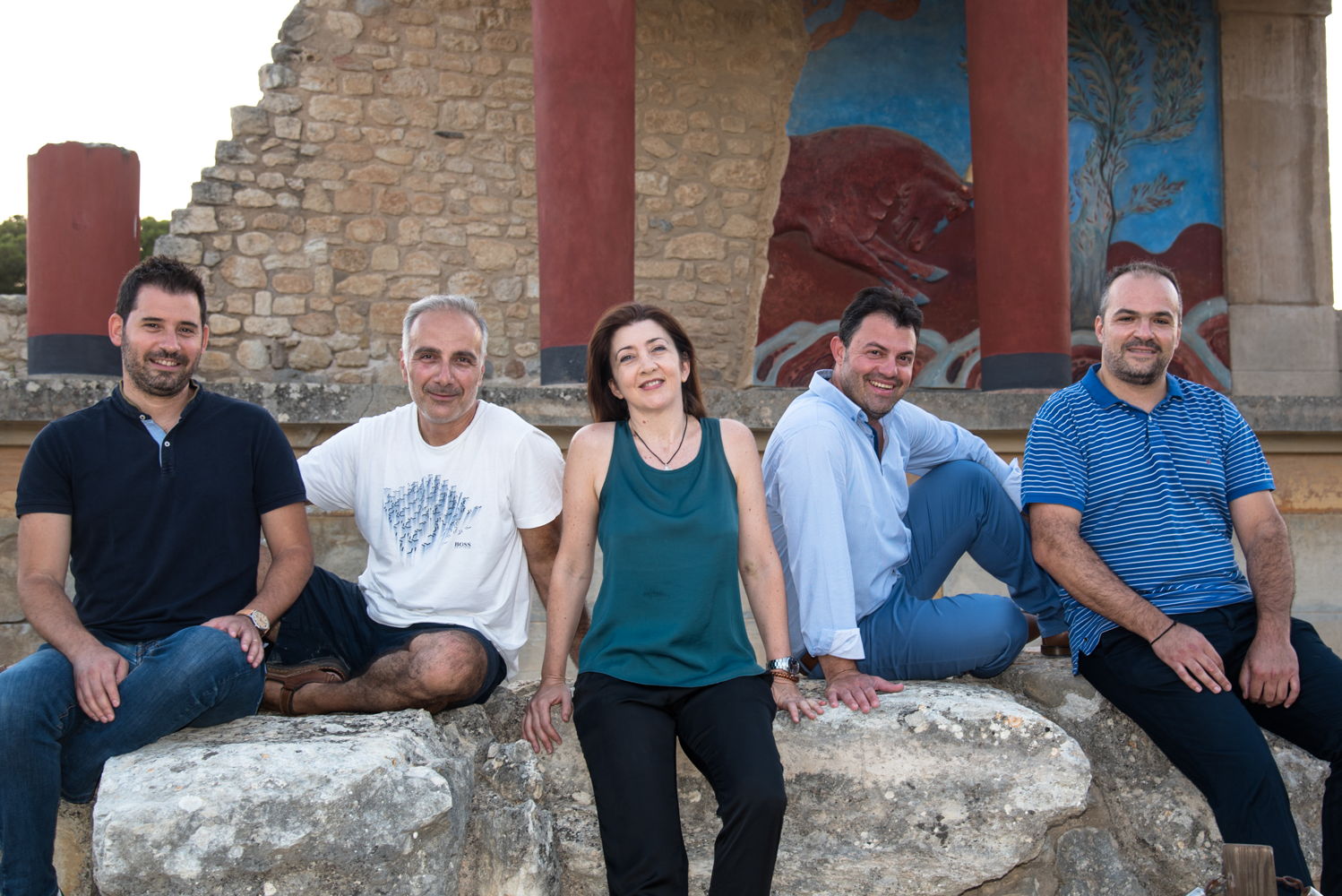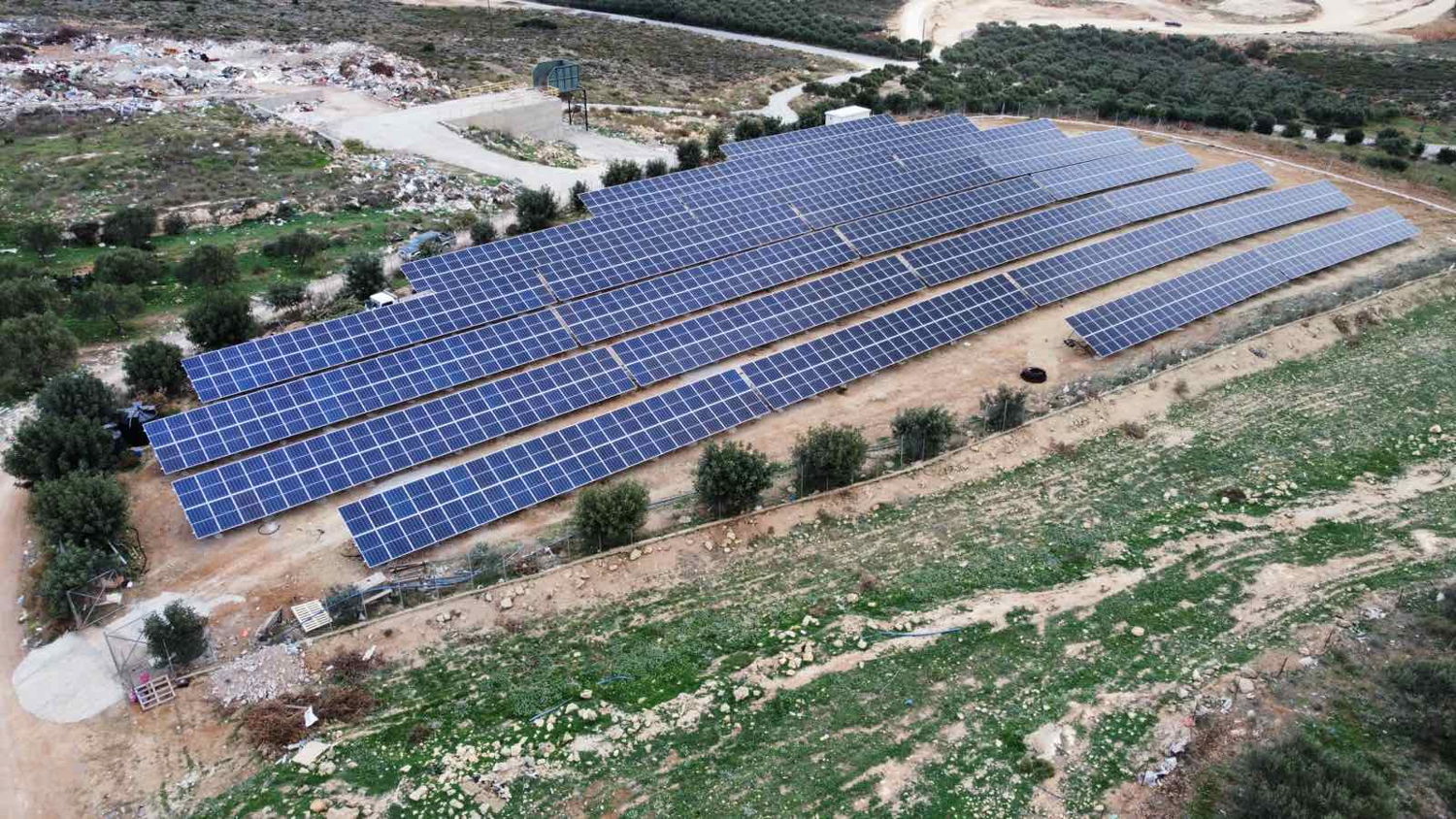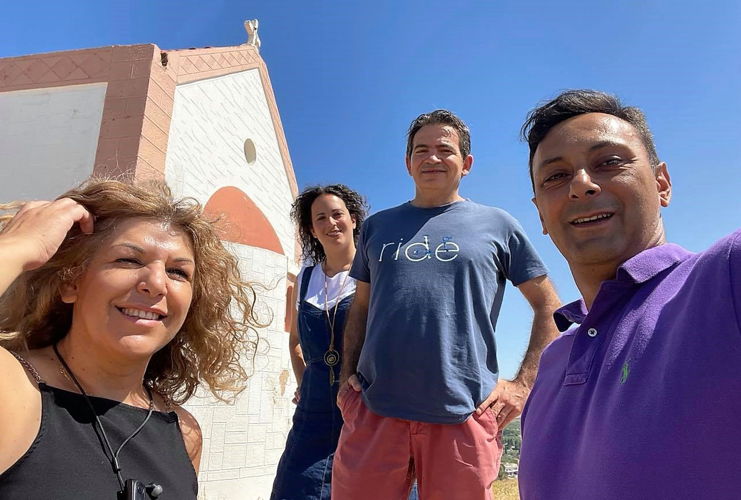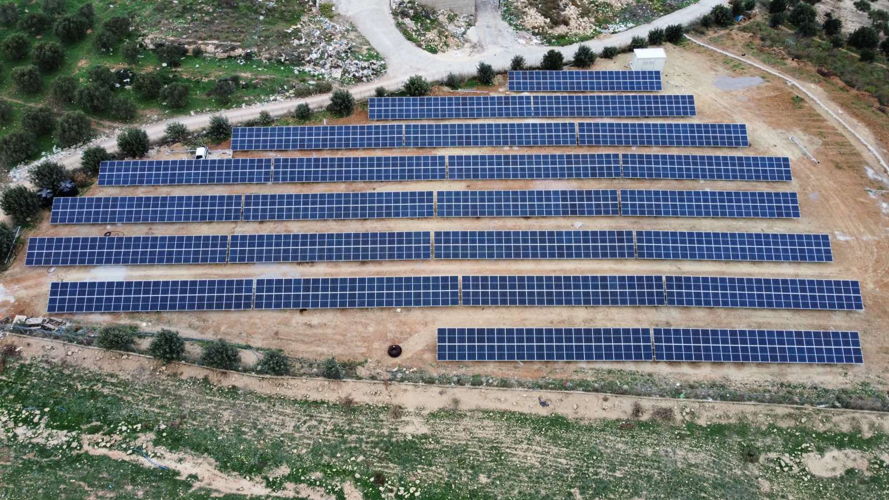Energy community in Crete aiming to provide free electricity to all announced as a finalist in the European Sustainable Energy Awards
First net metering project of Minoan Energy Community, which also aims to provide 100 households of low-income displaced earthquake victims with energy, is setting an example for citizen-led renewable energy initiatives

Over 100 households and businesses in Minoa Pediadas on Crete will have free electricity for the next 25 years thanks to a recently commissioned photovoltaic (PV) plant with an output of 405 kWp. The project, which is 100% funded and implemented by Minoan Energy Community members, relies on virtual net metering. This approach offers the option for the involved participants to compensate their annual electricity consumption with solar energy produced anywhere on the island territory.
‘We wanted to take Crete’s energy transition into our own hands. We started with this small-sized and realistic project to go through the process, also taking into account that energy consumers are currently suffering from very high prices. With this project we can provide members with free electricity,’ says Minoan Energy Community’s Dimitris Katsaprakakis.
‘Crete is a region blessed with renewable energy sources and we would like to utilise this potential, not only to serve the energy transition but also to engage citizens in this process,’ adds the President of the Community Charalampos Giannopoulos.
In 2021, an earthquake in the area forced 20% of residents out of their homes. Together with the regional authority, Minoan Energy Community plans to cover the energy needs of almost 100 low-income households, corresponding to more than 200 displaced earthquake victims. This first project has shown that they have a replicable model and one that also can address energy poverty in Greece.
‘Using our experience, we have been able to provide important assistance to several other islands on how to establish their own energy communities. We believe that every Greek island should have its own energy community. This is how the energy transition must be implemented,’ explains Dimitris Katsaprakakis.
Since the community’s first project, local awareness has grown with the Minoan Energy Community surpassing 400 members, including not only households and individual citizens but also public authorities, cooperatives, associations and SMEs. According to their value statement, ‘all are welcome to join the effort’. The community has been also presented as an example of best practice by Interreg Europe’s CLEAN project and the European Citizen Energy Academy (EUCENA).
The members take pride in how their energy community is governed. With the concept of ‘energy democracy’ at the core of the project, all strategic decisions are made by the General Assembly. The aim is to keep society as the key player, so that social justice remains at the heart of this work, no matter the motivation: whether climate change mitigation, environmental concerns or economic advantages.
In providing free energy to local residents, Minoan Energy Community is contributing to the European Commission’s Clean energy for all Europeans package and delivering on the European Green Deal. Establishing citizen-led renewable energy projects through energy communities is crucial to the EU’s renewable energy directive and is also supporting the REPowerEU Plan to accelerate the clean energy transition and increase Europe’s energy independence.
Global change through local action
Minoan Energy Community is one of three finalists shortlisted for the European Sustainable Energy Awards 2022 in the Local Energy Action category. The award recognises an implemented sustainable energy action, driven by a group of citizens or consumers, which contributes to the clean energy transition at the community or local level. The other finalists in the Local Energy Action category are C-Track 50 and ComAct.
C-Track 50 is a project that supported local authorities with long-term energy and climate planning across 11 European countries. ComAct is lifting households out of energy poverty by making impactful energy-efficiency improvements in apartment buildings in Central and Eastern European countries.
European Sustainable Energy Awards honour changemakers taking bold action on energy and climate goals
The European Sustainable Energy Awards recognise outstanding individuals and projects for their innovation and efforts in energy efficiency and renewables. Prizes will be awarded in four categories: Innovation, Local Energy Action, Woman in Energy, and Young Energy Trailblazer. Finalists are chosen by a high-level jury from a shortlist of the year’s most successful projects and actions for clean, secure and efficient energy. The winners will be decided by an online public vote which is open now until 18 September.
EUSEW 2022
The European Sustainable Energy Week (EUSEW) takes place on 26 to 30 September 2022 under the theme ‘Going green and digital for Europe’s energy transition’. EUSEW will bring thousands of sustainable energy stakeholders together both in Brussels and online to discuss Europe’s energy independence ambitions and climate goals through the REPowerEU Plan’s measures of energy savings, diversification of energy supplies and an accelerated roll-out of renewables.
Registrations for onsite and online attendance are now open.
For interview requests with the EUSEW 2022 Award finalists or additional media information, please contact media@eusew.eu



